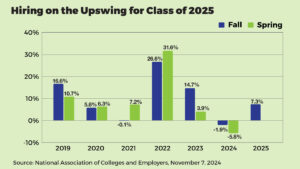When it’s time to cozy up for colder weather, it’s time to check in with your financial life, too. Here are a few financial tasks to check off your to-do list before December 31st to set yourself up for success in the new year.
1. Fund a 529 Plan for Loved Ones
The 529 plan is one of the best ways to save for future education expenses and in the state of Indiana you receive an extra tax credit for making contributions. If you are an Indiana resident and make contributions of $7,500 to the Indiana CollegeChoice529 plan, then you will receive a tax credit of $1,500 when you file your Indiana tax return.
Unlike an IRA or Roth IRA (which allow contributions until April 15th of the following year), contributions to a 529 Plan must be made prior to December 31st to receive the tax credit for 2023. So, if you would like to support yourself or someone else’s future education expenses, consider making these contributions now.
2. Make Your Charitable Contributions
As the year draws to a close, it’s the perfect time to consider making charitable contributions before the calendar flips to a new chapter. Giving back not only supports the causes you care about but also offers potential financial benefits.
By donating to qualified nonprofit organizations before year-end, you may be eligible for valuable tax deductions. This means that you can reduce your taxable income and potentially lower your overall tax bill. If you have the means, make sure you make your charitable contributions by December 31.
3. Take Qualified Charitable Distributions (QCDs) from Your IRA
While the CARES Act eliminated Required Minimum Distributions (RMDs) for 2023, you still have the opportunity to make a QCD this year. In order to be eligible for a QCD, you must be over age 70.5 and have a pre-tax retirement account.
If you qualify, you can transfer assets directly from your IRA to a qualified charity without paying taxes on the amount transferred. It is important that the process is completed properly. Otherwise, you could end up with additional taxable income. Be sure to talk to your advisor to help you complete a QCD.
4. Spend Your Flexible Savings Account (FSA)
If you are employed and you contribute to either a dependent care or healthcare FSA (or both), make sure you use all of the dollars in those accounts prior to year-end. FSAs are a great way to access tax-free money to help pay for necessary expenses, but if you don’t use the money in the accounts by the end of the year you lose it.
If you have money remaining in a healthcare FSA, then it may be time to schedule a check-up prior to December 31st or order a new pair of glasses. If you still have funds in a dependent care FSA, then make sure you have reimbursed yourself for all eligible expenses and check if your employer provides a grace period to use some of the funds in early 2024.
5. Consider Harvesting Capital Gains or Losses
Depending on how your taxable income has been affected this year, you may have an opportunity to take advantage of lower tax rates than you will have in the future.
If you saw a decrease in your income this year, then it may be a good time to work with your financial planner and tax professional to review tax projections and potentially sell some investments with long-term capital gains to take advantage of potentially lower tax rates.
On the other hand, maybe you sold assets this year which resulted in capital gains and it now makes sense to sell some assets at a loss to offset the tax impact of those gains. We call this capital loss harvesting and monitor our clients’ accounts for these opportunities throughout the year.
6. Set Yourself up for a Successful 2024
Finally, one financial task that everyone should be doing at the end of each year is revisiting your budget, goals, and plans for the new year. Review your 2023 spending and figure out where you want to make adjustments for 2024.
Have your short-term goals changed since the beginning of the year? Has anything this year altered your long-term financial plans? The end of the year is the best time to reset your goals based on the realities that have changed over the past 12 months.
2024 holds a lot of promise, and these six steps will help you hit the ground running. If you need help setting a new bar for the new year, Market Street is just a call away.







